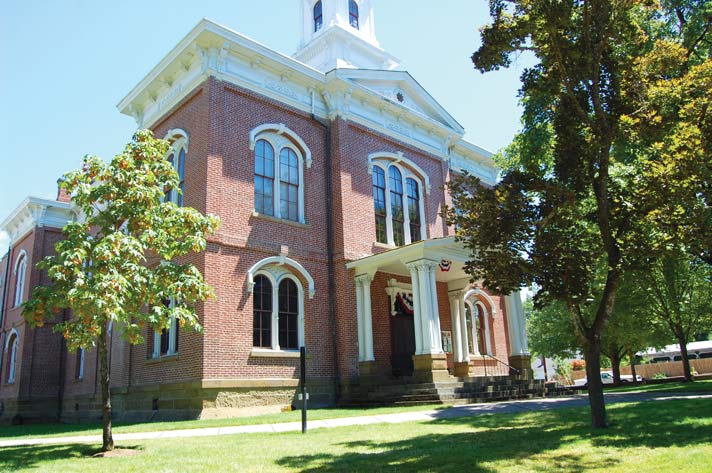We have every reason to be proud of Jacksonville’s police force. We can continue to support the men and women who serve us so well by carefully considering how we fund our police.
Historically, we have funded police services with our general fund, which, in turn comes mainly from property tax revenues. Today, those tax revenues are stretched very thin trying to cover other needed services and police. In fact, police services account for almost 100% of our property tax revenue in the general fund. So, we are looking at some alternatives to help fund the police, freeing up some general funds for other vital needs.
The City needs to find a revenue stream of about $400,000 annually, which would go directly into a special Police Protection Fund only for police services, to maintain the current levels of service and staffing. The $400,000 revenue would partially fund the Police Protection Fund at 58% and the remaining 42% will be transferred from the general fund. This will free up general funds to be applied to projects such as street repair, historic preservation, building Fire Department capital and Parks.
The Budget Committee has been considering multiple options over the last couple of years and had narrowed it down to the following two options:
Raising funds could be done through a property tax levy on all properties in Jacksonville. This levy would be $1 per $1,000 of property assessed value (AV). For example, a property with an AV of $450,000 would have a $450 per year property tax increase. By law, this levy can last only 5 years and must be voter approved. (Please see table below for more info.)
The other option would be a surcharge on the utility bills, like we now do for our fire department. This surcharge would be $20 per month or $240 per year, collected monthly. While no vote is required, it must be authorized by an ordinance, approved by City Council. The proposed surcharge could include a cap at a maximum of $20 per month for a minimum of 5 years. The Police Protection Surcharge would also have the same relief program and annual income criteria as the current Fire Protection Surcharge. If you would like to find out if you qualify for the surcharge relief please contact City Hall.
The City must provide police protection for its citizens. At the December 14, 2017 meeting, the Budget Committee recommended that the Council consider the surcharge as the fairest and most equitable funding source.
No decision will be made until the City Council fully considers the need for funding, the proposed methods and obtains public comment, both written and in public forum. Notices of coming actions will be provided.
PROPERTY TAX LEVY—CONSIDERATIONS:
- How much would a property tax levy cost me?
- Look at your most recent tax bill to determine your “ASSESSED VALUE“
- Divide your “ASSESSED VALUE” by 1000
- Multiply that number by $1.00
- Example:
ASSESSED VALUE = $450,000
Divide by 1000 = $450
Multiply by $1.00 = $450 increased taxes
Compared to a surcharge at $20 per month = $240 per year.
- Remember that Property Taxes are a TAX DEDUCTION NOT a TAX CREDIT.
- As a CREDIT you can deduct the full amount off of your tax bill.
- As a DEDUCTION you only reduce your TAXABLE INCOME, which reduces your tax bill, but only by a small % of the amount you paid.
- How much of a property tax levy can I deduct from my Federal & State income taxes?
- If you use the STANDARD DEDUCTION (70% of filers do so currently) you get NO tax benefit from paying this property tax levy.
- If you ITEMIZE DEDUCTIONS you can “DEDUCT” this increase as part of your property tax deduction, which will decrease your TAXABLE INCOME. You only get a small % of the increase as a reduction of your tax bill.
- What is the impact of the new Tax code for 2018 (as understood today)?
Increase in STANDARD DEDUCTION—More people will use this (est. 85%) Therefore NO tax savings from Property Tax Levy.
Lower TAX RATES—less tax benefit for those who ITEMIZE.
Cap on PROPERTY TAX DEDUCTION—Property Tax & Income Tax are combined with a cap of $10,000, therefore there might not be any benefit of the tax increase if your Income tax + current Property tax already equal or exceed $10,000.
